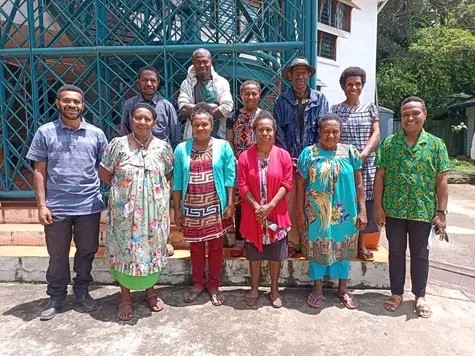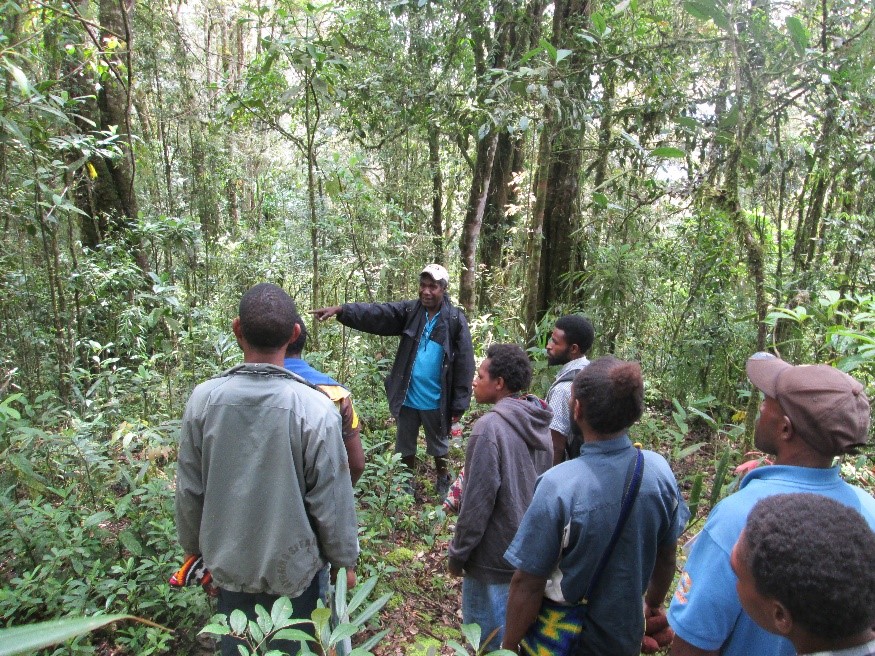Programs
Conservation Education Program (CEP)
Education is a vital tool for conservation. RCF has an innovative conservation education program which works in collaboration with partners like the National Department of Education through its Provincial Divisions in Eastern Highlands, Morobe, Simbu, Jiwaka and Madang Provinces. RCF also collaborates with teacher training institutions such as Balob Teachers College, Madang Teachers College, and Simbu Teachers College to train pre-service teachers on environment and conservation issues. One of the important partnerships RCF has is with the University of Goroka through its Indigenous, Environment and Development Studies (IEDS) Division where it jointly runs the Bachelor of Arts in Environmental Studies Program.
The aim of the program is to promote biodiversity conservation through education. The CEP targets children and students at all levels of education from elementary to tertiary who are the future custodians of PNG’s rich and unique environment. In order to reach children and students, RCF works with teachers, RCF believes that through reaching out to education systems and institutions, it can increase environmental literacy in PNG.
CEP implements a variety of activities:
- In-service and pre-service environmental teacher trainings for practicing and trainee teachers.
- Community outreach and awareness programs.
- Documentation and publication of communication materials.
- Documentation of traditional and indigenous environmental knowledge and practices.
- Provincial Resource Centers in Eastern Highlands, Chimbu, Jiwaka and Morobe Provinces.
- Community capacity building on environmental topics including climate change adaptation and mitigation, food security,
- Bio-culture classes or Lainim Tumbuna save skul.

Natural Resource Management (NRM)
Through the Natural Resource Management Program, RCF has been working with the local communities in the Crater Mountain Wildlife Management Area for over 20 years. RCF collaborates with these communities and other stakeholders to strengthen community conservation efforts through sustainable natural resource management and sustainable livelihoods.
The NRM Program supports the overall biodiversity conservation efforts of the Crater Mountain Wildlife Management Area through biodiversity inventory, community forest management activities, and climate change vulnerability risks assessment to name a few. RCF also engages with communities in various other activities such as land boundary mapping, development of land use plans to promote better natural resource management as well as other capacity building training and education on various topics. Stakeholder collaboration and partnership is also another important area of engagement through the NRM Program.
Through sustainable livelihoods efforts, the NRM Program ensures that communities are engaged in livelihoods activities that will improve their health and general wellbeing.
Activities that are implemented include:
- Community mobilization.
- Land boundary mapping.
- Land use planning.
- Organic coffee and vanilla husbandry.
- Eco-tourism and sale of local artifacts.
These activities encourage local people in the WMA to engage in environmentally friendly economic activities.

